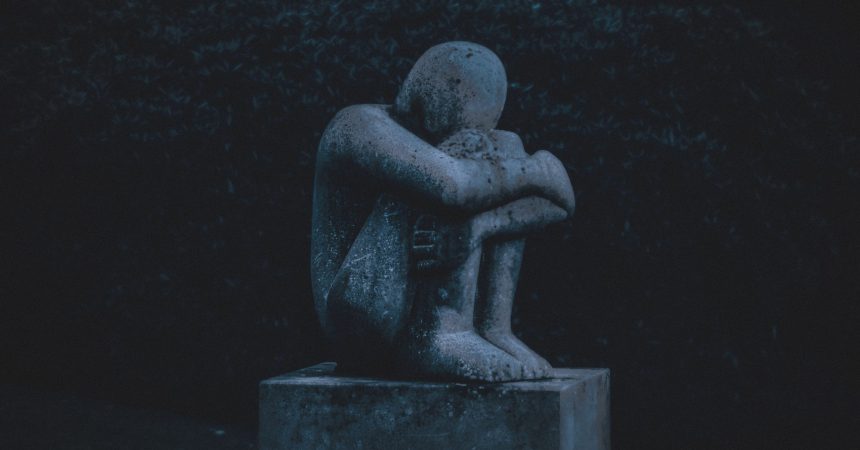Grief is an expected part of life when painful and unexpected life events occur, with the symptoms associated with these situations varying in duration and intensity from one person to the next.
Grief is an extremely powerful feeling that humans will eventually deal with at one point in life. These intense feelings of grief are not something an individual has much, if any, control over. These feelings are often associated with the death of a loved one; however, other situations can trigger the intense feeling, which can be seen to include:
- Serious illness within yourself or someone you love deeply
- Losing a job (career)
- A significant negative financial status change
- Divorce or the ending of a romantic relationship
- An assault or negative physical experience that has left you feeling unsafe
- Losing the ability to be physically mobile
- A near-death experience
Grief is not in any way a single emotion; it is an experience that individuals will feel in an emotional, physical, mental or spiritual way when they go through something extremely painful.
Each of us will be affected by grief differently; two people who are in the same situation may often deal with and act with the grief differently.
Understanding what grief is
Grief is an intense negative feeling, a sense of profound sadness. However, because so many possible events and situations can cause grief, giving it just one definition can be challenging. The types of pathological grief—chronic, inhibited, delayed, and atypical—are also discussed, along with personality variables predisposing some people to complicated grieving. Failure to grieve may also lead to a higher incidence of physical disease and mental illness.
Instead, let’s dive into the types of grief that can help an indidivual understand what they may be dealing with.
Normal grief
Normal grief, also called uncomplicated grief, is an emotion that can last anywhere between 6 months to 2 years. This type of grief is often associated with the death of a loved one or a severed relationship.
Delayed grief
Delayed grief is simply that. Grief the individual is not fully experiencing until quite a while after the traumatic incident that caused it in the first place. Individuals who experience delayed grief will often describe it as a devastating sadness that often hits them entirely out of the blue. Delayed grief can often take a few weeks or several months to years later.
At times the shock of an unexpected incident, such as a loss of a loved one, leads us to consciously or not ultimately hold off our emotions. Eventually, the delayed grief will catch up with you often by a triggering situation. Once the grief arrives, it can often be a welcomed experience for many individuals.
Pathological grief
Individuals experiencing pathological grief will suffer intensely; they will often be unable to perform standard daily tasks that they once did without even thinking. Pathological grief will often lead to additional health problems, which have been seen to result in the following:
- Various cancers
- Immune system dysfunction
- Cardiac events
- Hypertension
- Suicide attempts
- Hospitalization
- Significantly reduced quality of life
- Adverse health behaviours
During the first couple of months of pathological grief, many signs and symptoms are the same as those who experience normal grief. However, when it comes to normal grief, the signs and symptoms will eventually begin to disappear and fade over time; however those who are experiencing pathological grief, the signs and symptoms will linger or begin to get worse. Pathological grief is a constant, heightened state of mourning that will keep you from healing mentally and physically.
Below we have listed the most common signs and symptoms that are often associated with pathological grief:
- Severe lack of trust in others
- Feeling as though there is no meaning or purpose to life anymore
- Problems accepting death
- A strong focus on nothing but your loved one’s death
- Complete numbness or detachment
- Bitterness about the loss the indidivual has experienced
- Intense pain, sorrow and rumination over the loss of your loved one
- Extreme focus on reminders of the loved one
- Inability to begin enjoying life again
- Inability to think back to any positive memory or attachment to do with the loved one’s death
Furthermore, pathological grief may also be indicated if the indidivual continues to:
- Isolate themselves from everyone they were once close to
- Have trouble carrying out there every day or daily routines
- Withdrawal or isolating themselves from social events
- Feeling as though their life is no longer worth living
- Wishing they had died along with their loved one
- Experiencing profound sadness, self-blame or guilt
If you are having suicidal thoughts.
Pathological grief, at times, can begin to make individuals consider suicide. If you or your struggling loved one is experiencing suicidal thoughts, and you believe they may follow through, you would need to contact 911 or your local emergency services immediately.
If you believe your loved one has suicidal thoughts but does not intend to act on them, you should encourage them to contact a suicide hotline; call the National Suicide Prevention Lifeline at 1-800-273-TALK (1-800-273-8255) to reach a trained counsellor.
Complications with pathological grief
Pathological grief can affect you in many ways, physically, socially and mentally. Without effective treatment, complications will begin to arise:
- Depression
- Anxiety
- PTSD
- Increase in physical illness which can be seen to include:
- Heart disease
- High blood pressure
- Cancer
- Alcohol or substance misuse
- Nicotine misuse
- Long-term challenges with daily living, work and keeping up with relationships
- Significant sleep disturbances
Is pathological grief preventable?
It is unclear if there is a way to prevent pathological grief or any grief; however, there are ways to help individuals experiencing various types of grief. Seeking out counselling soon after a loss can often be highly beneficial, especially for individuals at a high risk of developing pathological or complicated grief.
Get support from family and loved ones.
Close friends, trusted family members, social support groups and spiritual communities are all beneficial options that can help an indidivual work through their grief.
There is often a range of support groups that are for specific types of loss, such as a death of a child or a spouse.
Talking
Speaking about your grief, how you are feeling, and what you are struggling with is a great way to get every emotion out of your body. Allow yourself to cry and understand your sadness, but do not get stuck in a negative emotional rut. It will be a painful process; letting your grief in and being vulnerable around your family will help ease your grief journey in due time.
When it comes to any grief, whether pathological or not, there is no time frame for which a person will ultimately return to their usual selves. However, you need to know when to contact a doctor or a mental health professional, especially if you are beginning to suffer from pathological grief.
If you are having intense grief symptoms and are beginning to have problems functioning through daily life and you don’t see these symptoms improving at least a year after the beginning of your grief, we would again suggest you look into contacting a medical professional.







